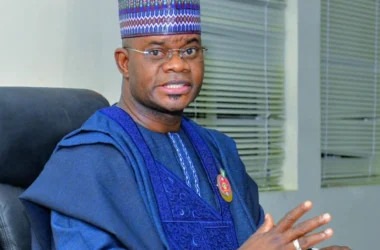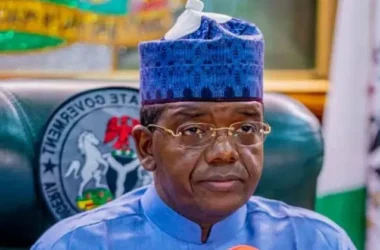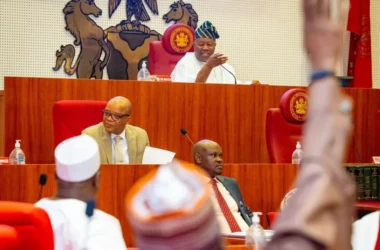The Central Bank of Nigeria (CBN) is implementing policies aimed at strengthening the banking sector as part of efforts to position the country for a $1 trillion economy.
CBN Governor Olayemi Cardoso made this known in Abuja on Thursday during the Monetary Policy Forum 2025, where he addressed key stakeholders, including fiscal authorities, legislators, private sector representatives, development partners, subject-matter experts, and scholars.
During his speech on “Managing the Disinflation Process,” Cardoso noted that the CBN’s primary objective is to ensure monetary policy remains forward-thinking, flexible, and strong enough to handle economic challenges.
He stated: “The CBN also focused on strengthening the banking sector, introducing new minimum capital requirements for banks (effective March 2026) to ensure resilience and position Nigeria’s banking industry for a $1T (one trillion dollars) economy.”
As part of ongoing financial reforms, Cardoso announced the launch of the Nigeria Foreign Exchange Code. He described it as a significant move towards improving integrity, fairness, transparency, and efficiency in the country’s foreign exchange market.
He added: “Built on six core principles, it represents a binding commitment from the financial community to rebuild trust and inspire confidence.”
The CBN governor also spoke on financial inclusion, particularly the role of women in economic development. He noted that the Women Entrepreneurs Finance (We-Fi) initiative, under the National Financial Inclusion Strategy, is playing a crucial role in closing the gender gap by providing more women with access to financial services and digital banking tools.
Additionally, he pointed out that remittances through International Money Transfer Operators (IMTOs) rose by 79.4% to $4.18 billion in the first three quarters of 2024, which he attributed to the positive impact of recent foreign exchange reforms.
In a move to enhance trade and attract investments, Cardoso noted that the CBN had lifted a 2015 restriction that prevented 41 items from accessing foreign exchange at the official market. This decision, he explained, is part of the broader strategy to create a more open and competitive market.
“These reforms and developments reflect the Bank’s commitment to creating an enabling environment for inclusive economic development,” he said.
While outlining the CBN’s broader goals, Cardoso stressed the importance of maintaining macroeconomic stability through a proactive approach to monetary policy.
He concluded: “As we shift from unorthodox to orthodox monetary policy, the CBN remains committed to restoring confidence, strengthening policy credibility, and staying focused on its core mandate of price stability.”










